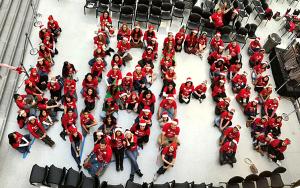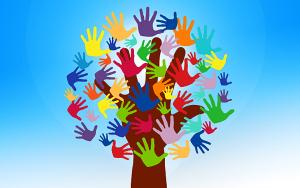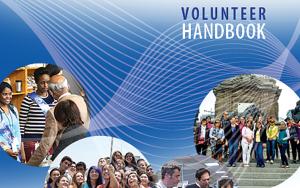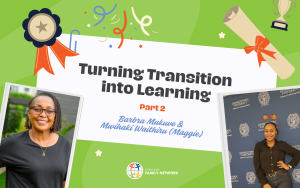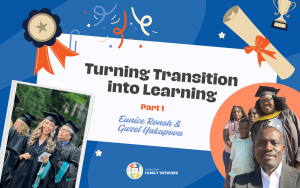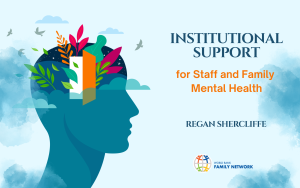
Laurence, you have recently joined the WBG as the Coordinator of the Domestic Abuse Prevention Program (DAPP). Could you please tell us about yourself?

I am honored to continue the legacy of the DAPP.
My role as DAPP Coordinator is the cumulative of the experienced I have acquired professionally and in quasi-professional moments. I spent most of my career at the Inter-American Development Bank where I worked primarily in operations. In 2017, I had the opportunity to join the IADB Gender, Diversity and Inclusion division where I was the focal point for the Caribbean countries. I began to look at the other side of gender-based violence (GBV), which had not been formally reflected in the gender paradigm. Most domestic abuse cases are committed by men, yet the gender strategy did not integrate this aspect. I used to ask, “what about the boys?” How can we help countries prevent as well as mitigate GBV? I devised operations to promote healthy masculinities to respond to this question.
During missions to the country offices, I took it upon myself to raise awareness of the impact of GBV on women and girls and became a de facto advocate for mitigating and preventing domestic abuse at the IADB. Many women and men, at HQ and COFs realized that they had a champion within the institution, and several came to me for support.
DAPP is celebrating its 20th anniversary this year. What were, in your opinion, the most significant achievements of the program in the past two decades?
Let me first say, that I am currently working with a great team (counselors, legal experts, and case manager) to build on the foundations of the Program DAPP shows WBG is focusing on what it preaches. Together, we strive to assist our clients: we listen and counsel, work as intermediaries with corporate units of WBG, IMF and IADB to offer them personalized solutions.
DAPP was created with a specific motive, to assist women who experience domestic abuse. I am proud to lead DAPP, following up on the footsteps of Elizabeth Legrain whose passion and dedication helped to propel the creation of this incredible initiative to support victims and survivors in the WBG, IMF and IADB communities. The implementation of a tripartite assistance - counseling / legal advice / financial – combined with the support of our corporate partners (EBC, HR, Pensions, Security to name just a few) and the institutional linkage with the Family Counseling Services set the tone in providing holistic assistance to the family unit.
How did the COVID-19 pandemic change the situation of the domestic abuse victims?
COVID-19 pandemic has caused the surge of domestic abuse. This Shadow Pandemic is hidden in plain sight. Of course, this is not singular to the COVID pandemic and similar negative effects have been noted during other pandemics and epidemics.
If during the past 18-months you felt you became smaller, then imagine being isolated and confined with one’s abuser during the quarantine period. The social network (family and friends) and institutional systems (e.g., legal courts and DV shelters) that once provided respite and helped survivors were suddenly reduced and limited. Emerging data from the USA and other countries show that the shadow epidemic occurred globally and cut across socio-economic classes, ethnicities, and religious beliefs. Even as we are entering in the hybrid work model (part home-based/ part office-based), the shadow epidemic will continue as most victims will continue to be isolated with their abusers.
The WBG was not immune to this surge. An analysis of DAPP services during these 18 months revealed that, when compared with pre-pandemic years, the average number of counseling interventions and individuals seeking psychological support increased by 27% and 12% respectively. We also saw an increase in severity and intensity in domestic abuse cases, consistent with national study. Survivors residing at headquarters and country offices experienced significant barriers in trying to access legal resources and the court system due to restrictions placed to mitigate the pandemic.
What message would you address to the individuals who are experiencing a form of domestic abuse? How can they seek help?
Global data shows that about one-third of women and 1 of 6 men have experience intimate partner violence. DAPP is here to assist employees, their spouses, and partners, regardless of sexual orientation and gender identity.
The message to all WBG, IMF and IDB spouses and partners (and staff): You are not alone. Often, individuals experiencing domestic abuse may feel isolated and suffer from shame. This can create a challenge in reaching out for help. It takes courage and strength to take that first step. We want victim-survivors to know that they are not alone and DAPP is dedicated to ensuring that they are empowered with information to make the best choices for themselves and their families.
DAPP is initiating a counseling program for perpetrators, and we have one counselor dedicated to this initiative. If you see or think your behavior is causing fear and hurt to your partner, your children and yourself, contact us. Our services are confidential (** except if we think someone is in immediate danger**).
For those who witness or suspect a relative or friend is a victim of domestic abuse: what are the best ways to proceed?
If you suspect or see something, say something. As friends, family, or colleagues we should express our concerns in a non-judgmental manner. You might say, I'm worried about you or what I see and name it - you may be experiencing domestic abuse. Recommend DAPP as a resource and ask if it would be helpful to assist them in contacting DAPP. Lastly, when children are involved, we want to be mindful of the danger to witnessing abuse as well as the potential of children being abused. Fifty percent of DA cases also involve child abuse.
DAPP is available 24/7. Please call or email us anytime if you wish to talk about what you experience, witness, or hear. When children are suffering the brunt of the abuse, do not hesitate to call the child protective services in your country.
October is the “Domestic Violence Awareness Month,” and soon the “16 Days of Activism against Gender-Based Violence” will follow in mid-November. Is DAPP planning any event?
As we ease out of confinement and progressing toward the hybrid work model, the shadow epidemic will continue. Therefore, the theme of our awareness campaign “Hidden in Plain Sight – Domestic Abuse while Working” centers on prevention and mitigation of domestic abuse in this context. The campaign will be held from October to mid-December, the period of the US-based "Domestic Violence Awareness Month” and the internationally renowned "16 Days of Activism against Gender-Based Violence.” The emphasis will be placed on promoting and disseminating these events to both HQ and country offices. All events will be accessible by MS Teams and the recordings will be available to both staff and spouses/partners. DAPP is planning the following events: for more detailed information on DAPP and events, Click Here
“Hidden in Plain Sight” event - an immersive VR experience on emotional and financial abuse - accessible by October 18, in English, then in French, Spanish and Arabic languages.
The Healing Emotional Pain and Trauma through Movement (on November 3rd) will engage participants in a conversational webinar focusing on embodied trauma healing approaches that utilize movement to alleviate the effects of traumatic experiences through innovative practices.
The panel event “A Call to Action” will be an open conversation for men and women on understanding how masculinity shapes our/their lives. Participants will be offered strategies to maintain healthy relationships, with a focus on the role male spouse/domestic partners, fathers, colleagues, and boys can play in this important work.
The “DAPP Beyond Headquarters” initiative will begin with the North African countries and will be offered in Arabic. Part of our strategy is a renewed focus on country officed. We plan to reach out to employees and their spouses/partners in their specific cultural context, and the events will be held as often as possible in the lingua franca of the countries.

